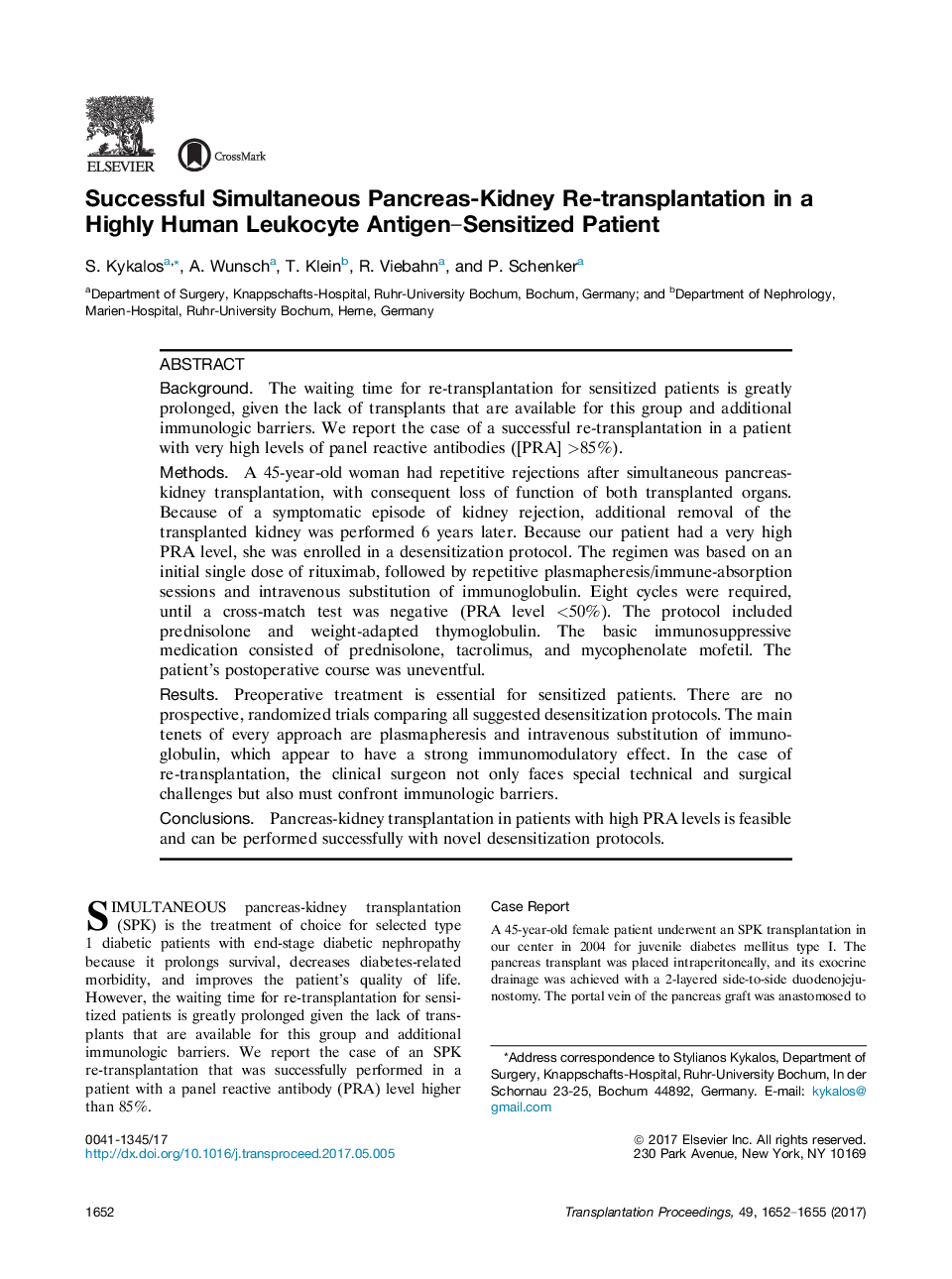| Article ID | Journal | Published Year | Pages | File Type |
|---|---|---|---|---|
| 5728754 | Transplantation Proceedings | 2017 | 4 Pages |
â¢We report a case of successful re-transplantation in a patient with very high levels of PRA (>85%).â¢A 45-year-old female patient had repetitive rejections after simultaneous pancreas-kidney transplantation, with consequent loss of function of both transplanted organs.â¢After undergoing a desensitization protocol, the patient had an uneventful postoperative course.â¢Pancreas-kidney transplantation in patients with high PRA levels is feasible and can be performed successfully with novel desensitization protocols.
BackgroundThe waiting time for re-transplantation for sensitized patients is greatly prolonged, given the lack of transplants that are available for this group and additional immunologic barriers. We report the case of a successful re-transplantation in a patient with very high levels of panel reactive antibodies ([PRA] >85%).MethodsA 45-year-old woman had repetitive rejections after simultaneous pancreas-kidney transplantation, with consequent loss of function of both transplanted organs. Because of a symptomatic episode of kidney rejection, additional removal of the transplanted kidney was performed 6 years later. Because our patient had a very high PRA level, she was enrolled in a desensitization protocol. The regimen was based on an initial single dose of rituximab, followed by repetitive plasmapheresis/immune-absorption sessions and intravenous substitution of immunoglobulin. Eight cycles were required, until a cross-match test was negative (PRA level <50%). The protocol included prednisolone and weight-adapted thymoglobulin. The basic immunosuppressive medication consisted of prednisolone, tacrolimus, and mycophenolate mofetil. The patient's postoperative course was uneventful.ResultsPreoperative treatment is essential for sensitized patients. There are no prospective, randomized trials comparing all suggested desensitization protocols. The main tenets of every approach are plasmapheresis and intravenous substitution of immunoglobulin, which appear to have a strong immunomodulatory effect. In the case of re-transplantation, the clinical surgeon not only faces special technical and surgical challenges but also must confront immunologic barriers.ConclusionsPancreas-kidney transplantation in patients with high PRA levels is feasible and can be performed successfully with novel desensitization protocols.
